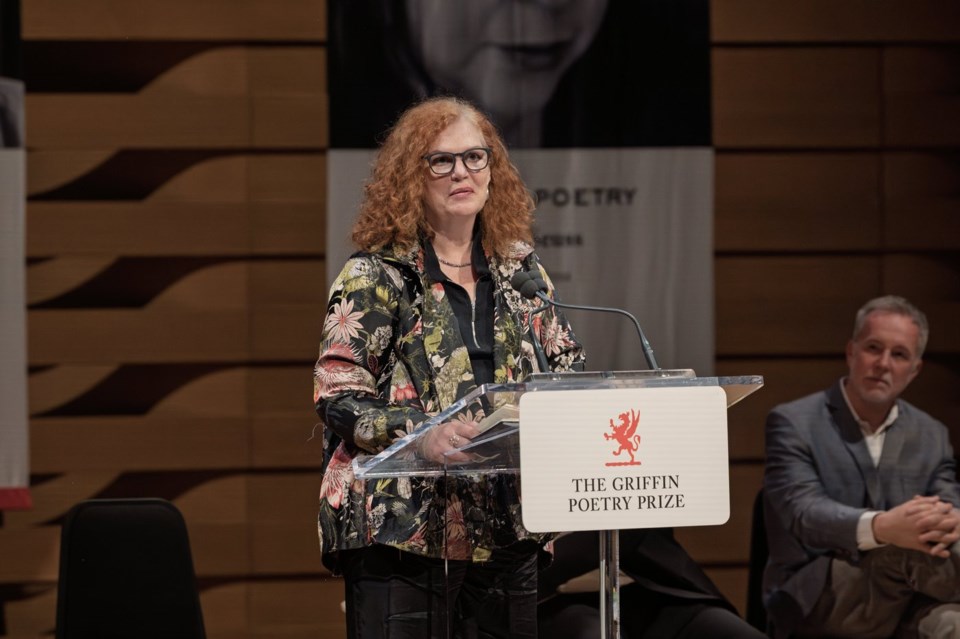TORONTO — As German writer Durs Grünbein accepted the Griffin Poetry Prize at a ceremony in Toronto on Wednesday night, he pointed to the Ukrainian flag ribbon pinned to his lapel and launched into an explanation.
"It's not only for Ukraine. This is now a war on Europe. If we do not stand together, one day, this continent will vanish," he said of Russia's invasion of Ukraine.
"I hope poetry is a support to ideas of democracy, humanity ... That's why I'm writing poetry."
The Berlin-based Grünbein shares the $130,000 award with British scholar Karen Leeder, a professor of German language and literature at Oxford University, who translated "Psyche Running: Selected Poems, 2005-2022" into English.
The Griffin judges praised the collection as being "universal, lyrical, philosophical."
Leeder, who as the translator receives 60 per cent of the prize money, said she was shocked to hear her name called. In fact, she hasn't thought of what she'll do with the winnings.
"We were onstage with such amazing poets, all of them," she said of the other finalists.
"I was really struck by how each poet or translator-poet read a different kind of extraordinary poetry at the highest level. They were all so different."
For his part, Grünbein said he was humbled by the experience — and didn't know how much money came with the prize.
This is the second time he has been up for the award.
"Ashes for Breakfast: Selected Poems," translated by Michael Hoffmann, was a finalist for the International Griffin Poetry Prize in 2006, before the Canadian and global prizes were combined.
Margaret Atwood also received the $25,000 Lifetime Recognition Award at Wednesday night's ceremony.
In his acceptance speech, Grünbein said he hadn't realized she was such a skilled poet.
That changed when he read two of her poems on Wednesday night, he said.
"I realized immediately that these lines were so concentrated, focused on — in that case — very important historical, political things," he said.
Earlier in the evening, Atwood received a standing ovation as she walked onstage.
Though she’s best known for novels including “The Handmaid’s Tale,” Atwood got her start as a poet. She’s published more than a dozen collections since the 1960s.
She’s also a founding trustee of the Griffin Poetry Prize, which was first handed out in 2000.
“We did have trustee meetings and they consisted of (prize founder Scott Griffin) telling us what to do, and us making suggestions that were rejected,” Atwood recounted.
Whitehorse poet Dawn Macdonald also read from her debut collection “Northerny," which won the $10,000 Canadian First Book Prize.
“Margaret Atwood is a bit of a tough act to follow,” she quipped before reciting a poem.
The other finalists for the Griffin were "The Great Zoo," translated by Aaron Coleman from Nicolas Guillen's original Spanish; “Kiss the Eyes of Peace," translated by Brian Henry from the original Slovenian by Tomaž Šalamun; Carl Phillips for "Scattered Snows, to the North”; and Diane Seuss for "Modern Poetry."
Each of the finalists receives $10,000.
This report by The Canadian Press was first published June 4, 2025.
Nicole Thompson, The Canadian Press




